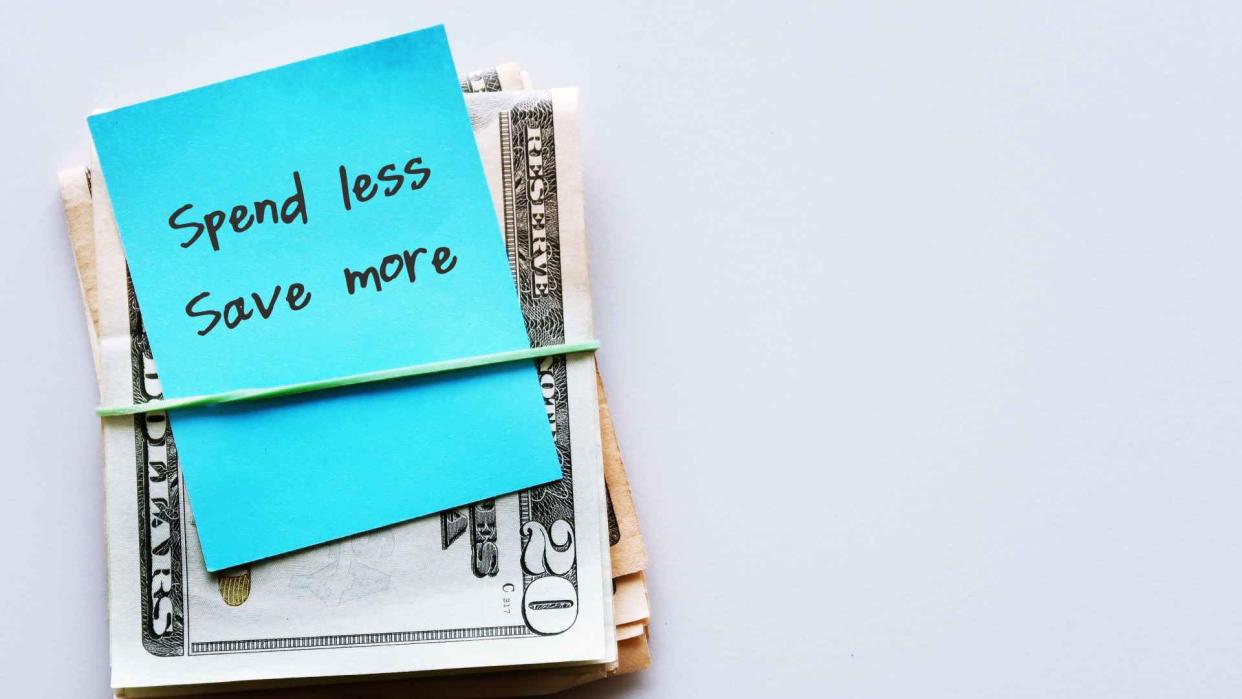I’m a Financial Advisor: These 9 Seemingly Frugal Habits Are Actually Costing You

Being frugal is a great trait that helps you save money and live a debt-free life. However, some frugal people’s habits may actually cost them money, health, time or happiness.
Learn More: 10 Things Frugal People Always Buy at Yard Sales To Save Money
Try This: How To Get $340 Per Year in Cash Back on Gas and Other Things You Already Buy
Keep reading as we explore some frugal habits that people tend to have that may be more costly than they thought.
Driving Far To Save Money On Groceries Or Gas
It may seem like a good idea to drive to multiple stores when the items you need are on sale or to a different gas station that has cheaper gas. However, if you consider the extra cost to get to these places, you might not save as much as you thought. Be sure to consider the cost of your time when deciding whether it is worth the extra drive.
Skipping Routine Maintenance
Performing routine maintenance on things like your car, appliances, or HVAC systems is a great way to keep these items operating at peak performance. However, anyone looking to save money usually skips these first. Unfortunately, that can end up backfiring in the long run.
Be Aware: 9 Bills Frugal People Don’t Pay
”Neglecting routine maintenance on items like vehicles, appliances, or home systems to save money upfront can lead to costly repairs or replacements down the line,” said Tyler Meyer, CFP and founder of Retire To Abundance. “For example, postponing oil changes or ignoring minor leaks in your home can result in major breakdowns or damages that require expensive fixes. Instead, consider investing in regular maintenance to prolong the lifespan of your possessions and prevent costly repairs.”
Buying Items In Bulk That You Won’t Use
Wholesale clubs, like Costco or Sam’s Club, charge less per item on merchandise by selling it in bulk. It can be tempting to buy items when you know the savings you’ll have on a per-item basis. However, if you won’t be using everything and there’s a chance for spoilage, it may cost you more overall. Instead, consider purchasing smaller quantities at the grocery, lowering the total cost.
Buying Items Only Because They’re On Sale
Sales are often a marketing tactic to get people to spend more money. Those marketing campaigns have worked if you buy items only because they’re on sale and not because you need them. Before purchasing items on sale, ask yourself if the product is something you need and will use. If it’s not, then the sale isn’t meaningful to you.
Buying Cheap Items
For many frugal individuals, spending significant money on clothes or household items can be difficult. Instead, they opt for lower-priced things that are more budget-friendly. Unfortunately, this isn’t always the smartest move.
“Buying cheap often leads to buying twice,” says Amanda Webster, chief operating officer of Fund and Grow. “It’s tempting to save now with lower-priced items, but durability matters. Higher-quality purchases last longer, saving you more in the long run. And while chasing deals and coupons feels like saving, if it’s for items you don’t need, it’s extra spending. Stick to your essentials list to avoid this trap.”
DIYing More Than You Should
If not done correctly, DIYs can cost you more money in the long run. This is especially true for large DIY projects like home repairs or upgrades. If you are not an expert, you may make costly mistakes. Then, not only will you have spent your time on the project and paid for the materials, but now you will also have to pay a professional to fix or re-do the work. While the idea of doing a DIY project can be appealing, unless you’re handy, this could cost you more than hiring a contractor.
Depriving Yourself of Something You Want
Depriving yourself of something you want can backfire. Not only are you costing yourself happiness, but too much deprivation could lead to splurging. Just as people who go on a restrictive diet have trouble maintaining it long-term, keeping too strict of a budget may make it harder for you to adhere to it for an extended period.
If you constantly deprive yourself of things because of your budget, you may end up ditching your budget altogether. The result can be spending more money than if you’d just purchased the item you wanted in the first place.
Opting Out of Health Insurance
Frugal and healthy people may be tempted to opt out of health insurance to save money every month. However, if you have an unexpected health event and don’t have insurance, you could get an extremely high medical bill, making you wish you had just paid the premiums.
Not Having Car Insurance
Some states require car insurance if you own a car. If you live in a state that doesn’t, it may be tempting to forgo it and hope for the best. However, you could pay hundreds or thousands of dollars in repairs or medical expenses if you end up in an accident and it’s your fault.
The Bottom Line
Frugality isn’t costly itself, but certain frugal habits can be. If you already have one or more of these habits, take a closer look to see if they are costing you more than you thought.
More From GOBankingRates
The Best $20 You Can Spend at Dollar Tree, According to Superfans
This is One of the Best Ways to Boost Your Retirement Savings in 2024
This article originally appeared on GOBankingRates.com: I’m a Financial Advisor: These 9 Seemingly Frugal Habits Are Actually Costing You
